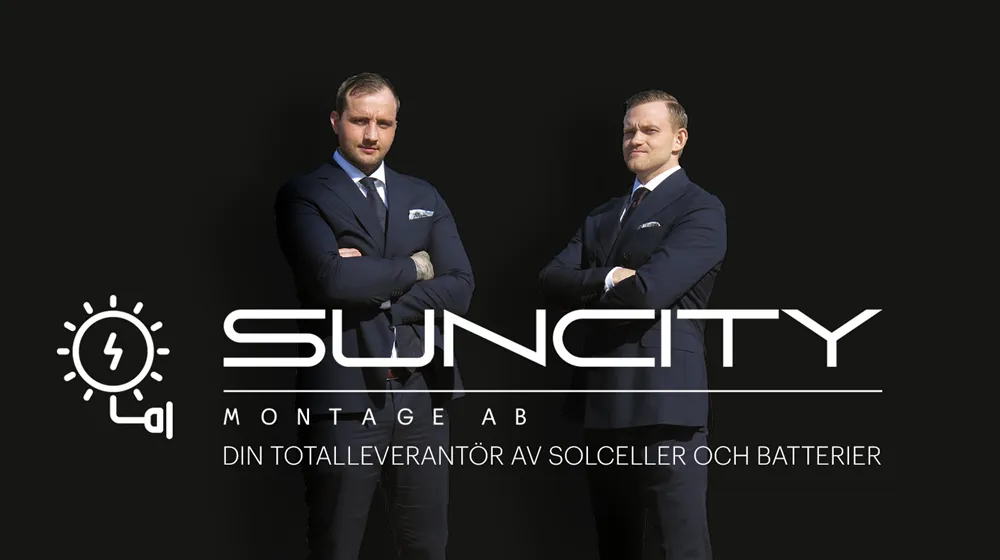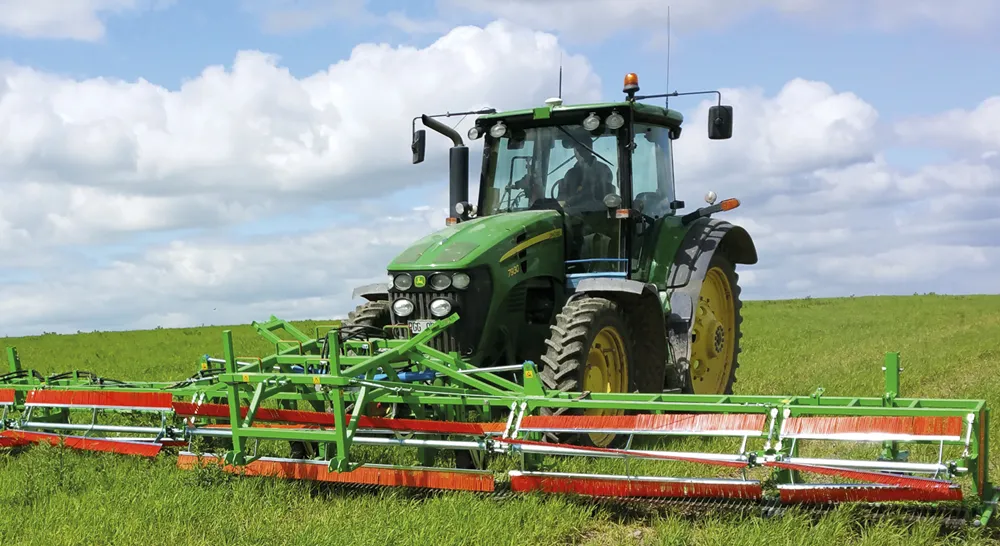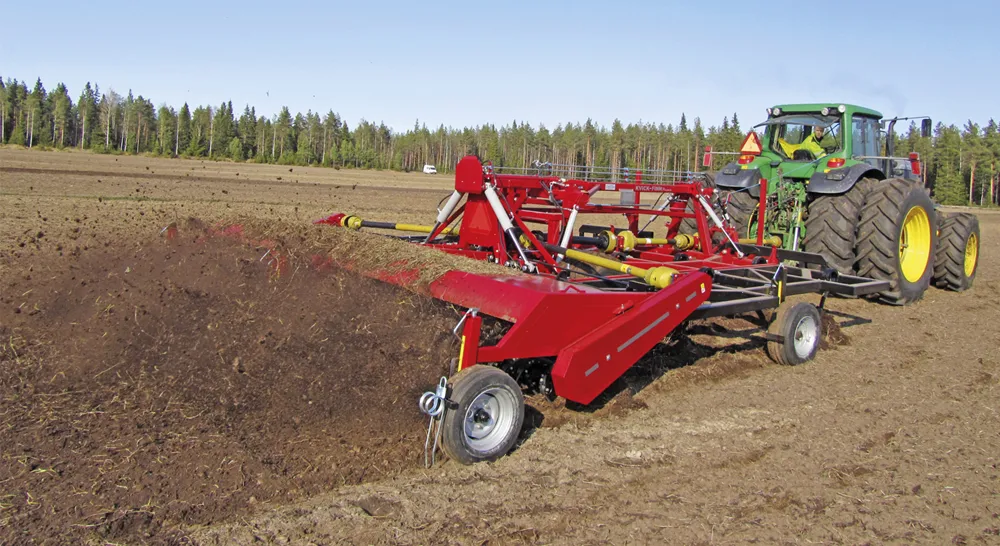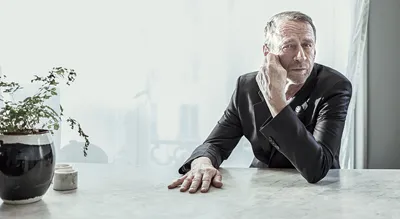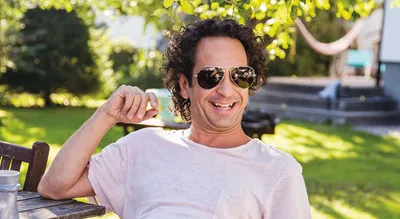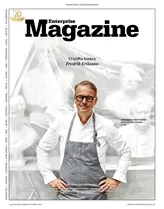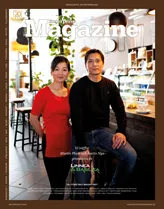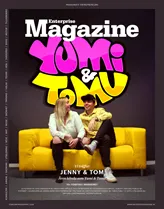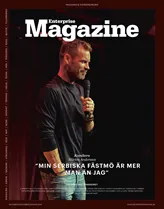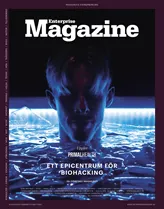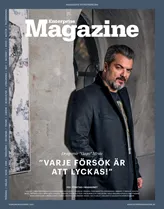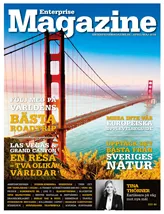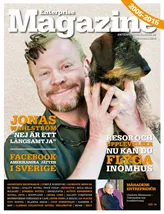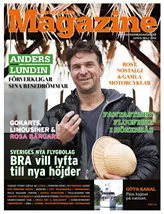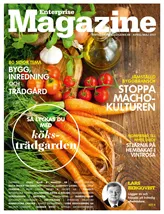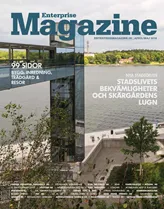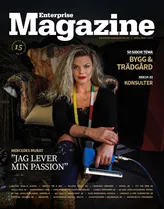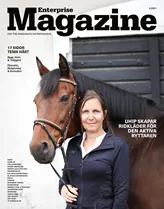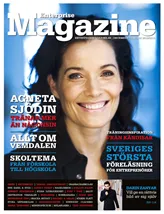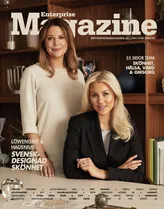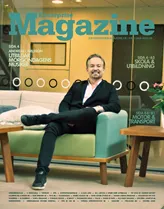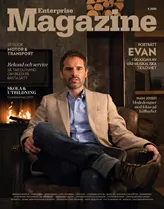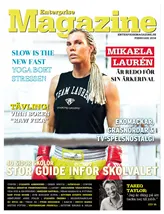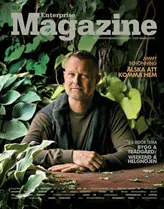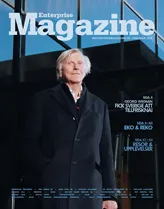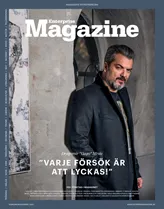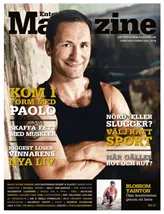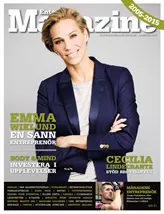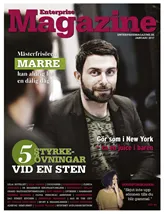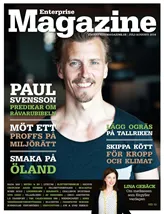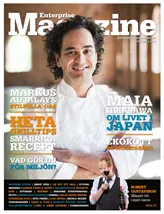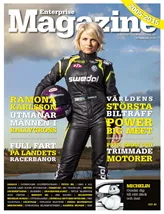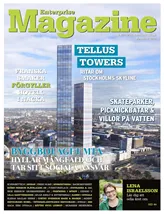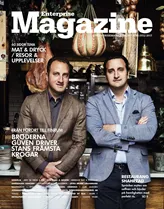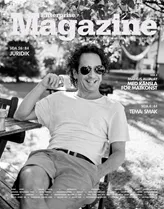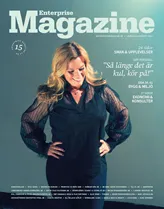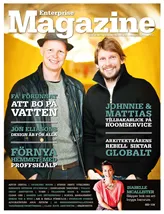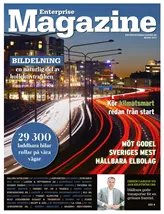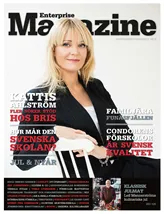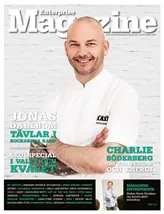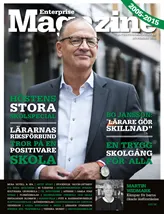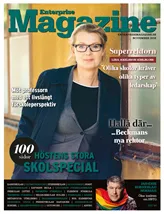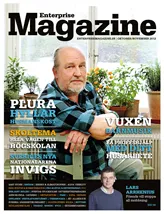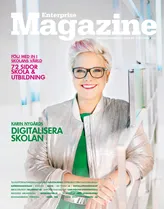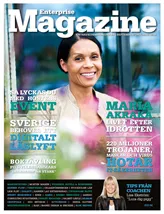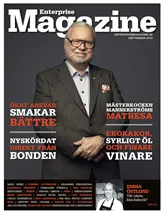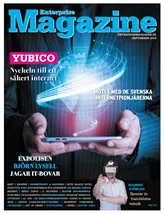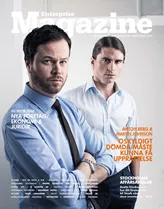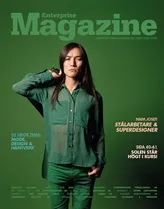In the 2000s, Lyckegård's founder and organic farmer, Jonas Carlsson, came up with an idea of how to combat weeds sprouting in cereal crops. This resulted in the development of the product CombCut, a tractor-drawn implement that separates weeds from cereal crops. The company is now working to create and develop several other innovative products and services to assist farmers.
In early 2020, Lyckegård purchased the Finnish machine Kvick-Finn, a combined cultivator and pickup. This machine loosens the soil, lifts the roots of the weeds and tosses the material up in the air. The soil, which is heavier, lands first. The weeds land on top and then dry up.
Lyckegård is continually working to develop existing products and to manufacture new ones. The company’s current project is their machine CombCut. The aim is to give it broader applications to reach a wider group of farmers.
– We are working on the next generation machine, which can be electrically adjusted from the cab, and we hope to introduce this product already this summer.
Christian Bjärntoft began working at Lyckegård a year and a half ago, replacing the previous CEO who retired. Christian had no direct experience with the agricultural industry, but the board wanted someone with other qualities. Since he had previously been employed with major international companies in sales, business development and business strategy, he was considered perfectly suited for the job.
– I jumped at this exciting opportunity to work on the future of food production, and to assist in this transition.
Christian explains that the company has received an overwhelming response to its products. For many farmers involved in organic grain production, the products are a strong alternative to other methods of mechanical weed management in the industry.
– Our solutions are important for sustainable farming, for consumers and for our environment. This is our vision for this journey, to be able to offer an entire portfolio of products.
Lyckegård has grown over the years. At one point the majority of its customers were in Sweden. Now, 15 percent of its customers are in Sweden while the rest are in other parts of Europe.
The company has also shifted its focus from the global market to Europe alone, which is a sufficiently large market.
Lyckegård's target market includes both smallholders with smaller cereal crops who often purchase farming equipment as a group, as well as large-scale farmers with several thousand hectares of cereal crops.
– Our industry colleagues are major global corporations. This is why we want to broaden our own product portfolio. We have the advantage of being able to reach customers on a more personal level, and we are more flexible that the industry giants.
Lyckegård's vision is to spread knowledge and develop products to help farmers achieve a more economical and environmentally sustainable production.
– Traditionally, there has been a polarisation between organic and conventional farming. We would like to move away from this, and instead focus on methods that are appropriate for the soil the farmer is cultivating. It is important to maintain sustainability, as consumers want clean products for a better environment.
Christian believes that there will be better and more environmentally friendly means of weed management in the future, and look forward to this. He views it as an opportunity to help farmers achieve a more efficient and profitable livelihood.
– The more sustainable methods on the market, the easier it will be to increase profit, which in turn will result in better raw produce and quality, says Christian.



